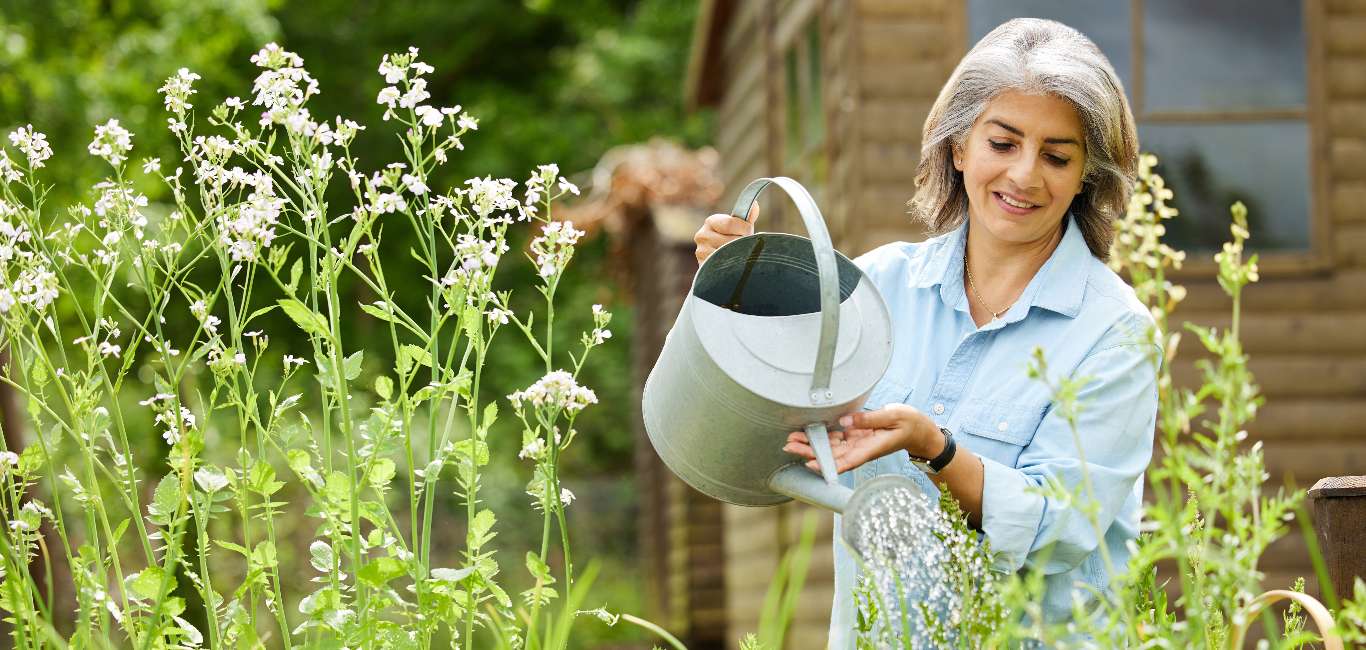
Tending to a garden patch, however small, has always been viewed as therapeutic. The sight of plants sown with your own hands, now bursting with flowers, and gently swaying to their own rhythm can soothe the eyes and mind that are weary from a hard day’s toil.
Anita Sharma, 50, a homemaker from Aligarh, Uttar Pradesh, knows this. She has transformed her terrace into a small garden with a variety of plants and cacti. Gardening is an essential part of her daily routine, something she inherited from her parents, and one that gives her joy and relief at the same time. “Witnessing the journey of dry seeds to blooming plants brings satisfaction and serenity to me,” says Sharma.
This is true for many of us who manage little garden spaces wherever we can.
Gardening can also prod the brain to form new neurons to learn new things, formation of new neurons (neuroplasticity) and improve brain reserve, studies show.
Gardening and the brain connection
It was earlier believed that the brain could not change or form new neurons after the developmental phase, that neurons could not be restored once they die, or new ones produced. Multiple studies have, however, disproved this belief.
Later, the concept of the brain’s neuroplasticity took over. Neuroplasticity allows us to learn new things, acquire new skills, form new memories, and adapt to different environments at any age. This is made possible by new neuronal connections bridging different regions in the brain and forming neurons.
“Gardening is a physical activity equivalent to mild to moderate aerobic exercise,” says Dr Antonio G Lentoor, Department of Clinical Psychology, School of Medicine, Sefako Makgatho Health Sciences University, Ga-Rankuwa, Pretoria, South Africa. The sensory experience of touching the soil, smelling the plants, and digging the soil increases blood flow to the brain, amplifying synaptic connectivity or neuroplasticity and improving cognitive health.
Neuroplasticity booster
To form new neurons and for neuroplasticity, the brain requires brain growth factors. These factors support the growth and development of neurons. According to Dr Lentoor, it has been found that even after 20 minutes of gardening, expression of brain growth factors such as brain-derived neurotrophic factor (BDNF), vascular endothelial growth factor (VEGF), and platelet-derived growth factor (PDGF) are promoted in the brain.
The physical act of gardening requires fine motor neurons that help move our fingers and hands. Simply put, neuroplasticity not only activates the brain, but the body as well when we tend to a garden.
With increased neuroplasticity, there is a consequent increase in the brain reserve. What exactly is brain reserve? As the name suggests, it is the extra tissue that acts as a reserve for the brain and helps to withstand neural degeneration or changes in the brain. It is one factor that protects us against disorders such as dementia and Alzheimer’s.
Soothing benefits of gardening
“I have been gardening for years and find it very relaxing,” says Dr Richard Thompson, Royal College of Physicians, London.
Both Dr Lentoor and Dr Thompson agree that gardening helps to de-stress and improves attention. A 2020 study published in the International Journal of Environmental Research and Public Health has shown that gardening increases the production of serotonin, thereby improving mood and lowering cortisol production.
When it comes to its mental health benefits, Dr Thompson says, “Gardening is effective and enjoyable, and much safer than drug treatments.”
The physical activity of gardening such as digging, planting and weeding, has been shown to decrease inflammatory cytokines, Interleukin-IL-6 (immune system chemicals released in the body). They are important in preserving the integrity of the blood-brain barrier and aid in neuroprotection, says Dr Lentoor.
Gardening for holistic development
The benefits of gardening are aplenty. It not only promotes our mental health but holistic well-being as well. It fosters social bonding and engagement and activates the brain. As a bonus, gardening’s bountiful yield of nutritious vegetables and fruits also improves our health.


















2 Responses
My name is Mrs Shirley Lakra. I have a small roof n balcony garden. I’m very relaxed n feel peaceful when in with my plants. U might think I’m crazy but I feel like my plants wait for me n they’re happy to see me. I talk to them too. I love gardening.
Many thanks for taking the time to read the article and write to us.
We are glad you could relate to the article and share your experience with us.
We look forward to your continuous engagement with us.